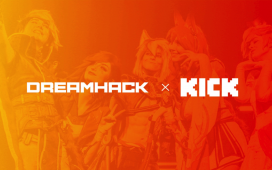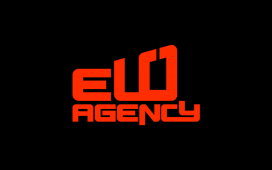In February, London Royal Ravens played host to a Home Series for thousands of baying fans as part of the location-based franchise model adopted by the Call of Duty League. Last weekend, the team held its second Home Series—but entirely remotely.
The Ravens’ local crowd is notorious within the CoD community. At last year’s CWL London, the fans were so raucous that several highlight reels of the crowd were created, showcasing exactly what happens when football culture meets Call of Duty.
But when COVID-19 takes away the option of a live audience, what is left? Is it really a home series, when the show is US-run in all but name? And how could one approach commercialisation of such an event?
We spoke to two members of ReKTGlobal, the company which owns the London Royal Ravens—Founder and Chairman Amish Shah and Chief Gaming Officer Michael “ODEE” O’Dell—shortly before the Ravens’ Home Series kicked off. The pair revealed what steps were taken to navigate such a unique quandary in the Call of Duty League, which only launched in January of this year.

Adaptation: Activision Blizzard at the helm
Activision Blizzard, the publisher behind Call of Duty and producer of the new league, could hardly have anticipated that its inaugural season could have kicked off so calamitously. Less than two months into the new Home Series calendar, the spread of the novel coronavirus pandemic caused the company to cancel all planned events and make the move to online.
Shah praised the company for their communication and commitment during the crisis. “We’re in touch with them like every day,” he said. “I mean, they’re really, really trying hard to make this a good experience for the fans. They’re trying hard to try to really connect to the audience, really trying to keep it authentic.”
And keeping the show “authentic” is no mean feat when one of the competition’s main selling points—its location-based system, designed similarly to that seen in the Overwatch League—is effectively nullified. At present, all the teams involved with the Call of Duty League are competing from the US. It’s hardly the pseudo-global model that was envisioned.
“Yes, it’s been a challenge since we’re not up in London,” Shah said. But, he said, the London Royal Ravens were still finding success connecting with the UK community. “We’re trying to keep all the elements from our social media posts that are very authentic to the UK folks. 30 per cent-plus of the viewership from the league on average is from the UK, even when the times are at like one or two in the morning, it’s crazy!”
Shah noted that Activision Blizzard at least scheduled the London Home Series at “more friendly” times for a European audience, despite the competition taking place in the US. “Listen, they’ve been great, trying to do the best they can, from competitive integrity to putting together the best broadcast, to trying to keep elements in there such as connecting with your fans with merch drops or content,” he said.
“Looking at this from my eyes, from the ownership and investors’ perspective… We were actually one of the 12 teams that were big advocates to bring matches online. We care about the safety of our players first. We care about the health of them.”
It’s not an ideal situation for anyone, but Shah was full of praise for the way Activision Blizzard has handled the reins. And ODEE, an industry figure venerated for his long history of management within esports, accepts that today’s situation is unprecedented.
“We’d definitely like to be in London playing with several thousand British fans shouting and throwing pints around,” he said. “That would be pretty cool if we could have that in our apartments, but we can’t.”

Commercialisation: picking up the pieces
Normally, a UK-based esports event would have a clear path to monetisation. You speak to local partners, create content built for the local audience, and hold on-site activations with booths that offer goods or experiences for local attendees. Now take out the “local,” and the road grows far murkier.
Shah admitted that the lack of opportunities for ReKTGlobal to create content in the UK presented a roadblock. “You can’t really commercialize as much as you like to,” he confessed. “The reason we wanted to have two events [Home Series] is that the first event we wanted to have all the sponsors and the stakeholders in there to actually see what it’s all about. And they were blown away. So, we were set up nicely to be profitable on our second event, with big sponsors, right? But the challenge is that event’s not there.
“What we’ve been trying to figure out is: what can we do digitally? And what can we do long-term? We’ve done things around [Call of Duty battle-royale game] Warzone. We had the Royal Ruckus, which was a Warzone event that had over 180,000 viewers, with celebrities and pros; that was something we tested for this homestand.”
Yet, as Shah explained, the focus is not on selling sponsorships for immediate return on investment: it’s on the future. “What we really wanted to do, since it’s a new organisation and a new team, was to build the fan base and connect with the fans. I think we’ve done an amazing job, right?
“So for us, [the goal] was to build brand equity, build an authentic team that the fans love—which we’ve done—and build something for the long-term, the future. That was our game plan.”
It’s just as well that ReKTGlobal aren’t just looking to make a quick buck, because brands have been slow to adapt to the online-only model, according to ODEE. “I think a lot of the vendors and sponsors are still working out how they move their LAN exhibition budgets (that they have sitting there doing nothing) online, and what they do and what they don’t do,” he explained.
“It’s just trying to prove the online is also viable for sponsorships. And also we have to point out and prove the return of investment for those kinds of sponsors.”

Reflection: a stronger future for Call of Duty
No one can say for sure when the world will return to a state that’s sufficiently normal for the Call of Duty League to resume its event calendar. And even when it does, visa complications for the league’s players could further delay the possibility of events held outside the US.
Yet Shah remains optimistic about what lies on the horizon for the league and his team. “You know, year one was a learning curve for Call of Duty League,” he mused. “I think that what we built into with London, we have a great foundation for the future.”
He also believes that Activision Blizzard will refuse to rest on its laurels, and predicts diversification of the esports scene for Call of Duty. “With Warzone being a top game, I think that you’re going to see them expand to do more around that. You’re going to see them doing more about Call of Duty: Mobile [a title released in October 2019], and also the amateur circuit.”
With the landscape expanding, London Royal Ravens is a brand well-poised to capitalise on new markets.
“We’ve already started doing activations with the amateur scene,” said ODEE. “Once the events pop up again, we’ll be the doing stuff with universities. We’re even doing stuff with the Armed Forces’ tournaments. So we’re already spreading.”














